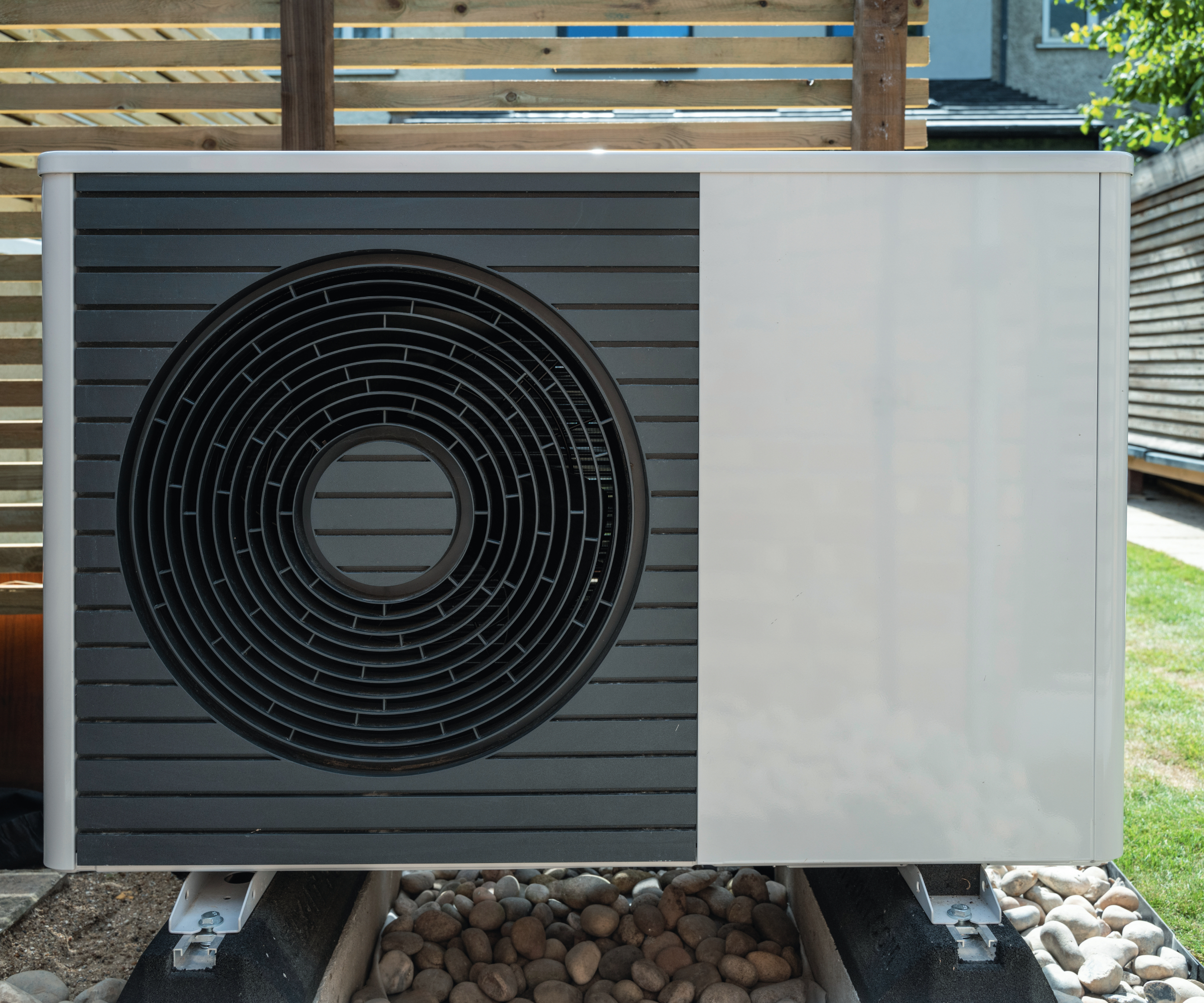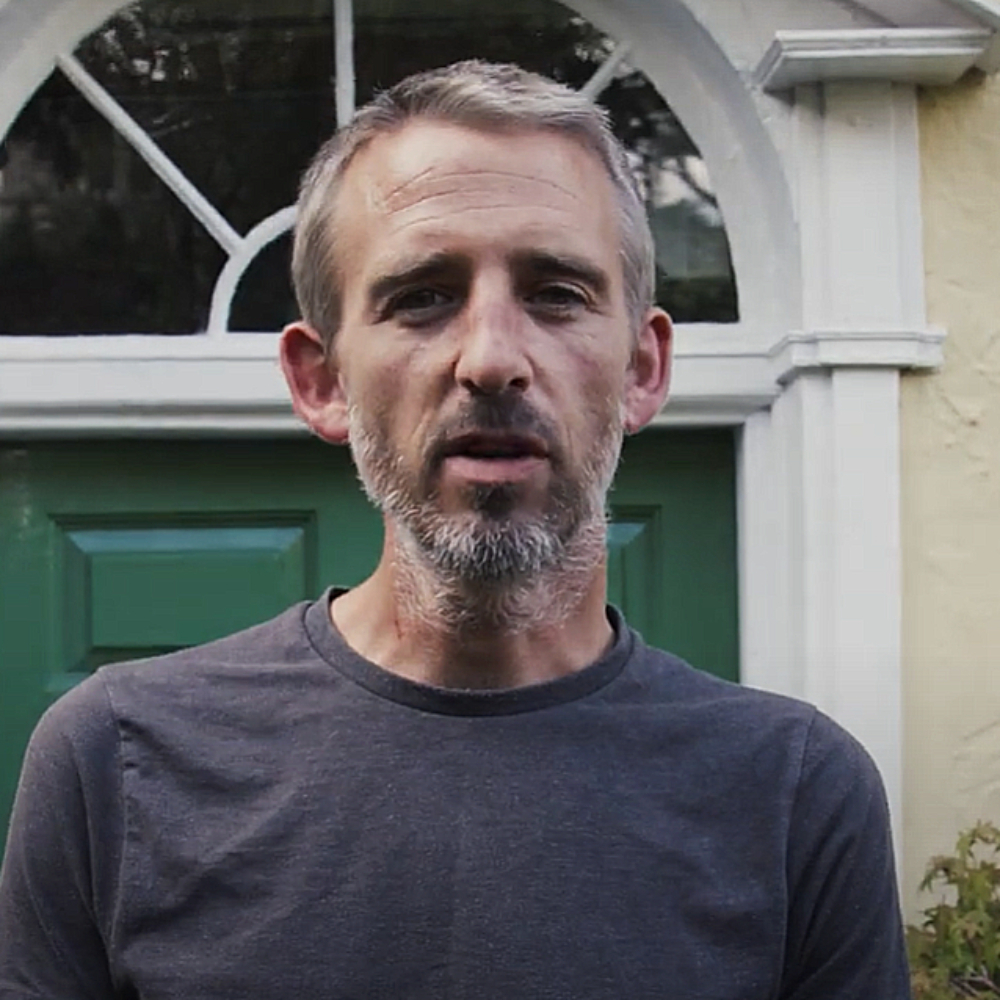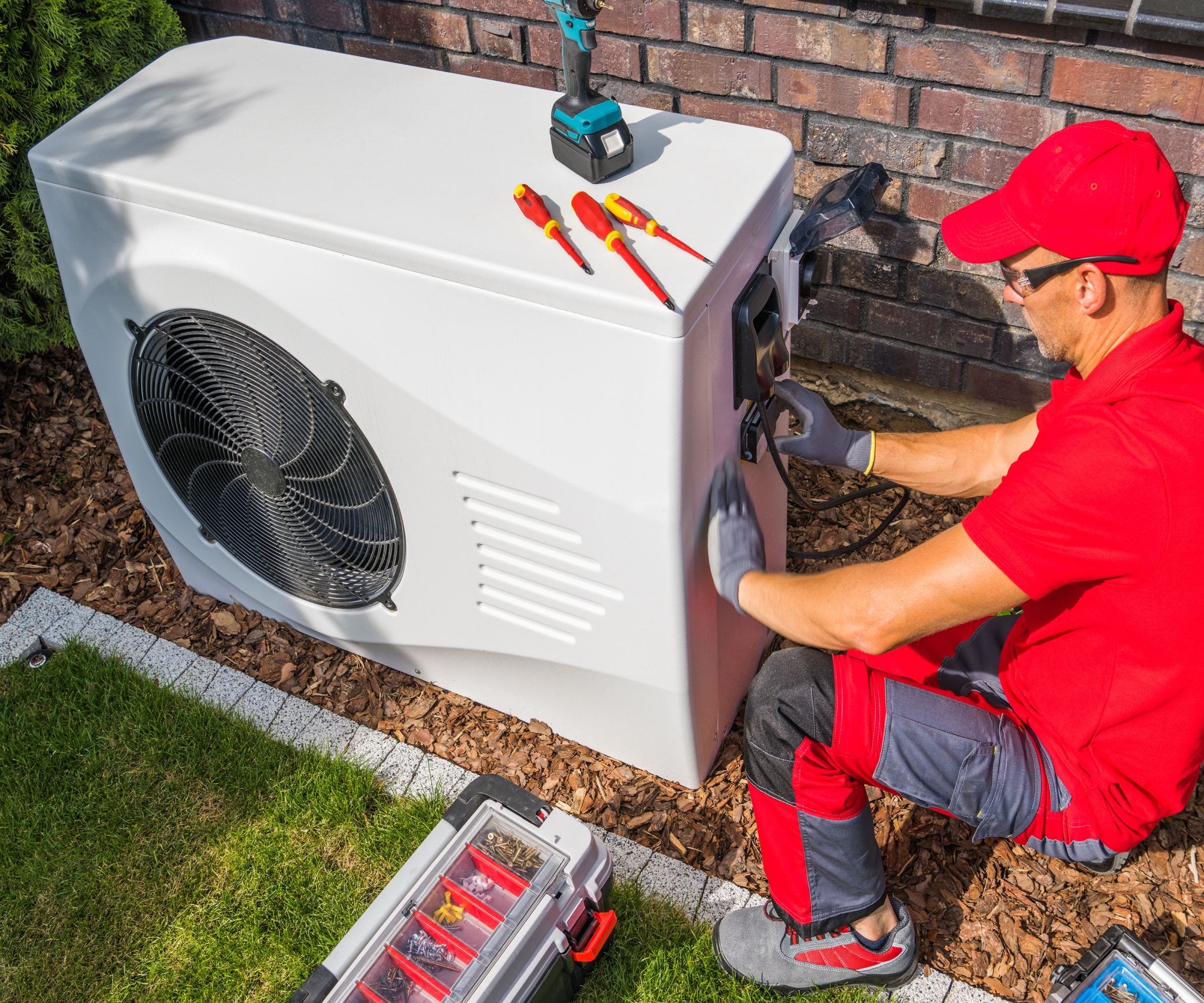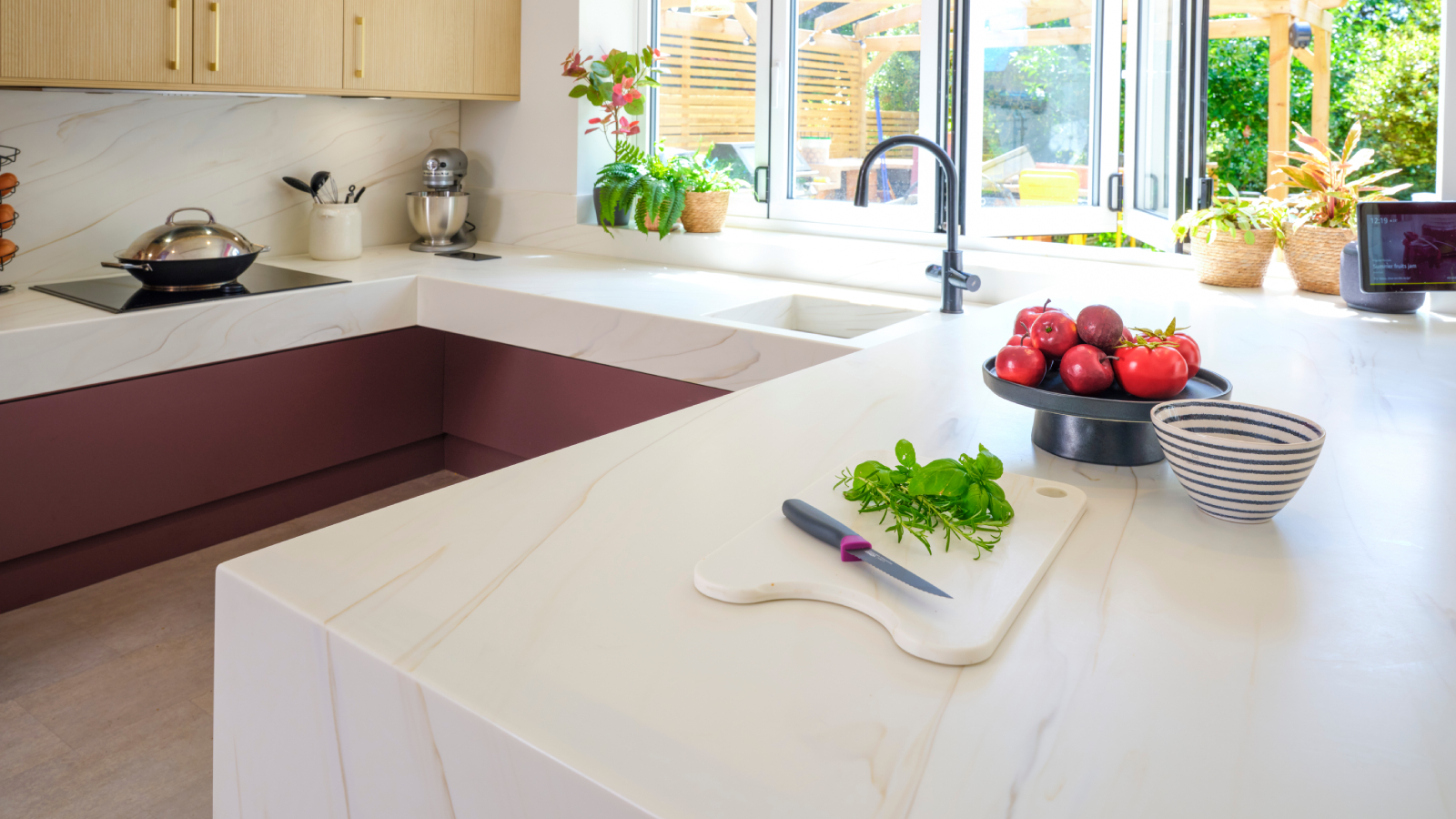Are air source heat pumps noisy? Experts reveal the answer
If you're wondering are air source heat pumps noisy, we asked the experts to explain the legal requirements and how this compares to other household appliances

Bring your dream home to life with expert advice, how to guides and design inspiration. Sign up for our newsletter and get two free tickets to a Homebuilding & Renovating Show near you.
You are now subscribed
Your newsletter sign-up was successful
Although they are located outside the home, people often ask are air source heat pumps noisy? While we may not get a great deal of summer weather, it's natural to wonder if the noise will disturb your outdoor enjoyment, be heard when the windows are open, or indeed, cause an issue with your neighbours.
"This belief can be traced back to when heat pumps were first made available to UK consumers," says Tamara Birch, senior writer for The Eco Experts. "At the time, they were quite noisy. But that’s not the case today."
So what is the noise level for air source heat pumps, are there any legal restrictions to protect you and how does the noise compare to other household appliances?

Tamara Birch, Senior Writer for The Eco Experts, has written about environmental topics for over four years. This includes advising small business owners on cost-effective ways, like solar panels and energy-efficient products to help them become more sustainable.
Are air source heat pumps noisy? Why do people think they are?
Although only the first generation heat pumps were noisier than they are today, it's still one of the most common heat pump myths we hear today. But why?
"It’s not helpful that mainstream newspapers use headlines such as, "heat pumps are too noisy for millions of the homes in the UK," says Hamid Salimi, residential product manager at Daikin UK.
"These claims are based on a report presented at the Institute of Acoustics in October last year," he explains, "which suggested the heat pumps installed in flats or terraced houses would break the noise limits set by the Microgeneration Certification Scheme.
"However, these statements are exaggerated and misleading," says Hamid. "Improvements in technology and proper selection and installation will overcome any noise issues in the majority of homes."
Bring your dream home to life with expert advice, how to guides and design inspiration. Sign up for our newsletter and get two free tickets to a Homebuilding & Renovating Show near you.

Hamid Salimi has a BSc and MSc in mechanical engineering and has worked with Daikin for over 13 years in various roles such as product applications, HVAC design and currently as a Product Manager leading a team of product specialists covering all aspects of residential renewable heating.
What are the legal requirements?
"The legal limit for an air source heat pump unit is 42 decibels," says Tamara Birch, and there is currently an air source heat pump positioning legal requirement for a one metre distance between a heat pump and neighbouring boundaries. It is three metres in Wales.
However, a recent DEFRA review into heat pumps, recommends that due to the low number of complaints received about noise, this restriction should be lifted. This would in turn open up the possibility for more homes to become suitable for installing a heat pump.

What is the average noise level of air source heat pumps?
Herein lies the main reason behind the newspaper headlines, and the reason why people still ask are air source heat pumps noisy.
The current decibel level of most heat pumps does exceed the 42 decibels the government set. But, not by very much.
"Modern heat pumps are relatively quiet," says Steve Cole, retrofit co-ordinator at the Centre for Sustainable Energy. "They typically produce 40 to 60 decibels of sound, equivalent to a quiet office.
But, while some heat pumps do exceed the 42 decibel guideline, Hamid Salimi says people need to understand that even the noise experts consider this 40-60 range to be acceptable.
"Daikin’s quietest heat pump model is the Daikin Altherma HHT, which operates at just 53 decibels," explains Hamid. "It’s so quiet that it’s been awarded Quiet Mark certification by the awarding body for quiet technology.
"We’ve made a few design improvements to make it so quiet, including a sound jacket around the compressor, rubber feet and an improved low-sound fan. We’ve also added a front grille to hide the fan — something we call a psychological silencer."

Steve has worked across various domestic retrofit projects and has over 18 years’ experience working in construction in England, Wales, and Ghana. He has worked at various levels, from labourer to site and project management, for charities, private individuals, and for both private and public companies.
How does this noise compare to household appliances?
Perhaps the first point to note, is that 40-60 decibels is not considered to be a dangerous level of sound. If you are weighing up a heat pump vs gas boiler, it's also worth noting they have the same decibel range.
"At most, heat pumps make about as much noise as a fridge or gas boiler," confirms Tamara Birch. "53 decibels is also quieter than an electric toothbrush," adds Hamid Salimi. "It’s around the same noise level as a washing machine, which could be noisier during a spin cycle, or a dishwasher. And remember, it’s outside your home, so the noise level is even less intrusive."
But what about the noise outside? As the low number of noise complaints made about them would suggest, it's not really an issue.
"Considering how quietly they run," says Hamid, "it’s very unlikely that a heat pump will cause a noise disturbance for neighbours."
"Professional installers will always conduct noise assessments to ensure compliance," adds Steve Cole.

Is the noise level different on low temperature heat pumps compared to high temperature ones?
"Noise levels depend on factors like the heat pump's make, size, installation method, and how hard it's working," says Steve Cole. If the installer has done their job correctly, the noise should not be an issue.
However, variations do still exist and some may still find their heat pump noisier than others, although it's less to do with low temperature vs high temperature heat pumps. "The main reason for noise variations is incorrect specifications," begins Hamid Salimi
"For example, if a house requires a certain size heat pump, but an undersized model has been installed, then the heat pump will have to work much harder to maintain the temperature inside.
"This will make it operate more loudly than it should," he explains, "which is why you should always choose a qualified expert to specify and undertake your air source heat pump installation."
Can the noise be reduced?
"Yes," says Hamid Salimi. "Technology is coming on in leaps and bounds. The Daikin Altherma HHT model, for example, has a sound jacket around the compressor and an improved fan design to reduce sound levels.
Plus, most of our heat pump models offer a ‘low sound mode’. This will set the heat pump to run at a lower fan and compressor frequency in a noise-sensitive area.
"However, it is important to note that the heat pump won’t offer such high capacity in this mode," he adds. "This must be taken into account from the outset when specifying a heat pump which would operate in low sound mode."
Still not convinced? We asked David Hilton, Homebuilding's energy expert and air source heat pump user what it's like to live with a heat pump. His verdict on the noise? Negligible. Even though it's located near a wall backing onto a bedroom, he's barely heard it in the five years it's been in place.

Sarah is Homebuilding & Renovating’s Assistant Editor and joined the team in 2024. An established homes and interiors writer, Sarah has renovated and extended a number of properties, including a listing building and renovation project that featured on Grand Designs. Although she said she would never buy a listed property again, she has recently purchased a Grade II listed apartment. As it had already been professionally renovated, she has instead set her sights on tackling some changes to improve the building’s energy efficiency, as well as adding some personal touches to the interior.
